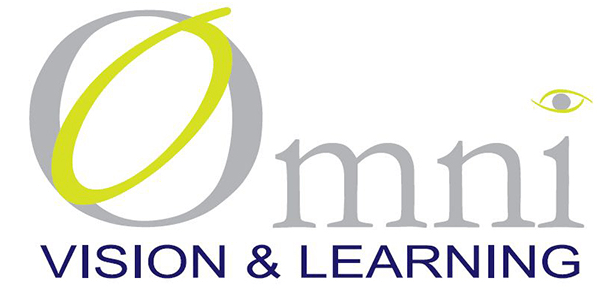
Vision & Balance: How Vestibular Dysfunction Affects Your Eyes
The vestibular system, located in the inner ear, plays a crucial role in balance, spatial awareness, and motion perception. When this system is disrupted—often due to a concussion, traumatic brain injury (TBI), stroke, or neurological condition—patients can experience dizziness, vertigo, motion sensitivity, and difficulty focusing.
At Omni Vision & Learning Center, we specialize in Neuro-Optometric Rehabilitation to help patients recover from vestibular dysfunction and vision-related balance issues. Through targeted therapy, we work to retrain the brain and eyes to work together, improving stability, reducing dizziness, and restoring clear, comfortable vision.
How Vestibular Dysfunction Impacts Vision
 Because the vestibular system and vision are deeply connected, a disruption in one often leads to symptoms in the other. Many people with vestibular dysfunction experience:
Because the vestibular system and vision are deeply connected, a disruption in one often leads to symptoms in the other. Many people with vestibular dysfunction experience:
- Dizziness & vertigo – Feeling unsteady, especially when moving
- Motion sensitivity – Discomfort in crowds, scrolling screens, or fast-moving environments
- Balance problems – Difficulty walking, standing, or maintaining stability
- Light sensitivity (photophobia) – Increased discomfort in bright or fluorescent lighting
- Eye strain & headaches – Trouble focusing, leading to fatigue and discomfort
- Blurred or double vision – Difficulty keeping objects clear while in motion
These symptoms can make everyday activities—reading, driving, or simply walking through a busy environment—extremely challenging.
What Causes Vision & Balance Disorders?
Vestibular dysfunction can result from various neurological conditions and injuries, including:
- Traumatic Brain Injury (TBI) & Concussions – Disrupt the brain’s ability to process motion and visual input
- Stroke or Neurological Conditions – Affect eye coordination and depth perception
- Inner Ear Disorders (Vestibular Neuritis, Meniere’s Disease, BPPV) – Cause dizziness, imbalance, and motion sensitivity
- Postural Instability & Visual Motion Sensitivity – Difficulty maintaining balance due to misalignment between vision and movement
If left untreated, these issues can worsen over time, impacting independence and quality of life.
How Neuro-Optometric Rehabilitation Can Help
At Omni Vision & Learning Center, our Neuro-Optometric Rehabilitation Program is designed to help patients:
- Improve visual tracking and stability – Reduce dizziness and motion sensitivity
- Enhance depth perception and spatial awareness – Increase balance and coordination
- Reduce light sensitivity – Restore comfort in bright and digital environments
- Strengthen eye-brain communication – Train the eyes to work in sync with body movements
Our customized treatment plans integrate a combination of therapies to restore clear, comfortable vision and balance.
Treatment Options for Vestibular-Related Vision Issues
-
Customized Vision Therapy for Vestibular Dysfunction
- Exercises to retrain visual tracking and focusing abilities
- Techniques to improve spatial awareness and balance
- Specialized activities for motion desensitization
-
Prism Lenses & Therapeutic Eyewear
- Prism lenses help stabilize vision and reduce dizziness
- Tinted lenses help manage light sensitivity and visual stress
- Customized therapeutic glasses improve motion processing
- Syntonic Light Therapy
- Uses colored light frequencies to regulate the visual-vestibular system
- Helps reset balance perception and reduce motion discomfort
-
Vestibular-Visual Integration Training
- Specialized exercises designed to coordinate vision and movement
- Helps patients regain stability in daily activities
These therapies work together to help patients regain control, confidence, and independence in their daily lives.
Who Can Benefit from Vestibular Vision Therapy?
Patients with the following symptoms or conditions may benefit from Neuro-Optometric Rehabilitation for vestibular dysfunction:
- Frequent dizziness, vertigo, or motion sickness
- Difficulty walking or balancing in busy environments
- Blurred vision or trouble focusing when in motion
- Sensitivity to screens, bright lights, or fast-moving objects
- Post-concussion or post-stroke vision issues

Find Relief & Restore Balance – Schedule a Consultation
Don’t let vestibular dysfunction and vision problems interfere with your life. If you’ve been struggling with dizziness, motion sensitivity, or balance issues, Neuro-Optometric Rehabilitation can help.
Schedule a consultation today in Monticello and take the first step toward regaining control over your vision and movement.

